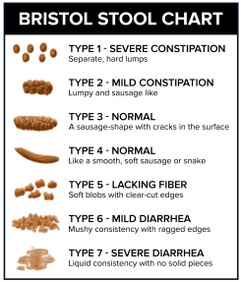Eat Yourself Well
- janieje

- Jul 20, 2021
- 3 min read
Updated: Jul 25, 2021
Of course I see a lot of digestive issues in clinic, it’s the crux of why clients come to me. But even after the first clean up of a diet , removing processed foods, chemicals , GMO’S, prescriptions and stress there are probably 4 core reasons why digestion is ruining quality of life. And fear not , there are many things you can do about it.
🍏 Poor Chewing
Digestion begins the minute food hits your mouth. As you chew, you mechanically break down your food and alkaline enzymes are secreted from the salivary and parotid glands, which begin to break down the food (like starches) chemically.
Most people chew their food between seven and fourteen times, but it’s suggested chewing your food thirty to fifty times per mouthful in order to mix the food with saliva properly for optimal digestion.
As a result of poor chewing habits, food is not broken down properly in the first stage of digestion, which makes it more difficult for the second stage to be properly performed.
🥦 Low Stomach Acid
Once you swallow, food is quickly moved through the esophagus and lands in the stomach, where it is stored, liquefied, and processed by acidic gastric juices. The stomach releases enzymes (pepsinogens) and hydrochloric acid to reduce proteins to medium sized fragments called polypeptides.
Unfortunately, low stomach acid can cause a lot of pain like acid reflux, and many other digestive complaints. Extended periods of low chronic stress, processed foods, poor food combining, vitamin and mineral deficiencies, anti-acid use, Candida, and drinking cold water at meals can all create low stomach acid.
To increase stomach acid, try drinking an ounce of apple cider vinegar shortly before a meal, and eliminate all the culprits that lower it.
🥑 Impaired Pancreatic Function
Once the stomach breaks down the food, it passes into the small intestine where it is met with an intense secretion of digestive enzymes from the pancreas. These enzymes neutralize acids and break down fats, carbohydrates, and proteins.
Refined and sugary foods, excessive toxins, pasteurization, cooking, and excessive amounts of alcohol will overtax the pancreas, and it will not function properly. To increase your enzyme levels, choose raw, fresh produce and fermented foods like sauerkraut.
🥝 Improperly Functioning Liver
Another essential component to digestion is bile, which is produced by the cells of the liver. It performs two important functions.
First, bile helps eliminate unfilterable breakdown products from the blood before they are passed to the kidneys. Second, bile neutralizes stomach acid and helps ease the absorption of fats and fat-soluble vitamins. If the liver is overloaded with toxins or has stored too much glucose, the canals on the gall bladder become compressed, which decreases bile flow and impairs digestion.
An overloaded and swollen liver reduces blood flow from the abdominal and pelvic regions, which can result in blood pooling, which can putrefy and cause all sorts of problems like hemorrhoids, bowel irritation, and more. Once the liver is unable to dilute toxins to keep the blood clean, the digestive system becomes exhausted.
To increase liver function, avoid processed foods, alcohol, and chemicals in all forms as much as possible. Consider liver healing foods and herbs like beets, cruciferous vegetables, garlic, turmeric, avocados, sauerkraut, kefir, milk thistle, artichoke leaf, dandelion leaf, and reishi mushroom.
Know the signs of impaired digestion
One easy way to know how your digestion is doing is by the frequency and form of your fecal matter. You should strive to have 1-3 complete and fully formed bowel movements in a day. Anything less that 1 a day indicates a malfunctioning digestive system, and anything more than 3 is a sign of problems as well.
What should you be looking for in your poop? The Bristol Stool Chart will give you an idea.
Type 4 is ideal, but type 3 is also fine. Anything other than those two, and you have a digestive disturbance. The only caveat is that if you are on a cleansing or detoxification protocol, you may experience other types and in that transitionary period it is a good sign of toxin removal occurring. However, if this goes on for a considerable amount of time, please contact your GP.
#nutrition #digestion #ibs #constipation #guthealth #secondbrain #microbiome #naturopath #colonichydrotherapy #herbshandshealing #health #wellness







Comments